2 Situation report | 4 Running on empty A race against time to find enough fuel to keep a hospital up and running in Yemen | 8 ‘We heard the blast from the first missile’ MSF reports from the war in Ukraine | 10 Somalia eye camps How a team is restoring sight for thousands of Somalis | 12 Cooking for colleagues An Afghan logistician learns a new skill in Sierra Leone | 14 ‘The water was nine feet deep’ Bringing care to people left devastated by the Pakistan floods

Winter 2022 107
SITUATION REPORT
600Number of patients admitted to the cholera treatment centre in Idlib, Syria, in the first two weeks of opening
1. NIGER
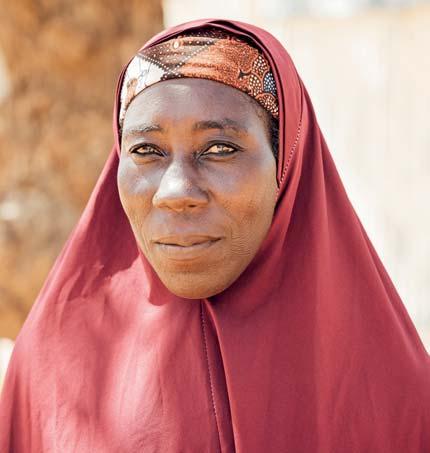
Maraliyya Garba brought her two-year-old son Abdourahmane Ibrahim from the village of Totsa to MSF’s nutrition centre in Madarounfa for treatment. “I brought my youngest son here because he is severely malnourished,” she says. The boy spent two days in the intensive care unit, where he was treated for severe acute malnutrition with medical complications associated with his weakened immune system. Maraliyya Garba and her husband are farmers, but are too scared of the violence sweeping the region to tend their crops and harvest enough to feed their family. One of their daughters was abducted and a ransom was demanded for her return.
2. DEMOCRATIC REPUBLIC OF CONGO

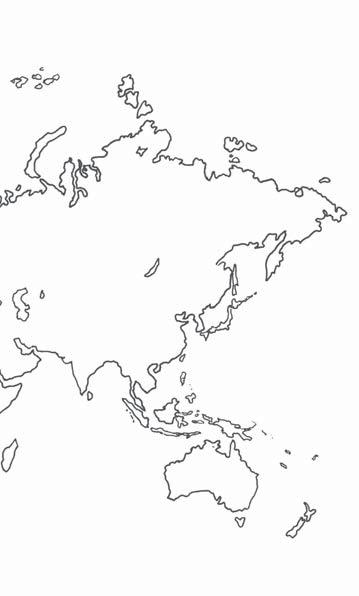
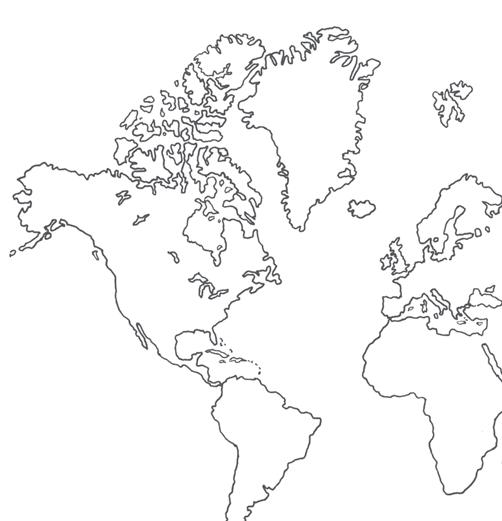
MSF nurse Evariste Bayedi talks to a boy at Simbambéli clinic in Kwamouth. The child’s father had planned to sell his plot of land so that he could afford to take his son to the capital, Kinshasa, for medical treatment, but the arrival of MSF’s mobile clinic meant that he could be treated free of charge on the spot. In July 2022, intercommunal tensions erupted in Kwamouth, leading to an attacked, wounded and killed. An MSF team arrived in the area on 24 August to run mobile clinics and provide the displaced people with clean drinking water.
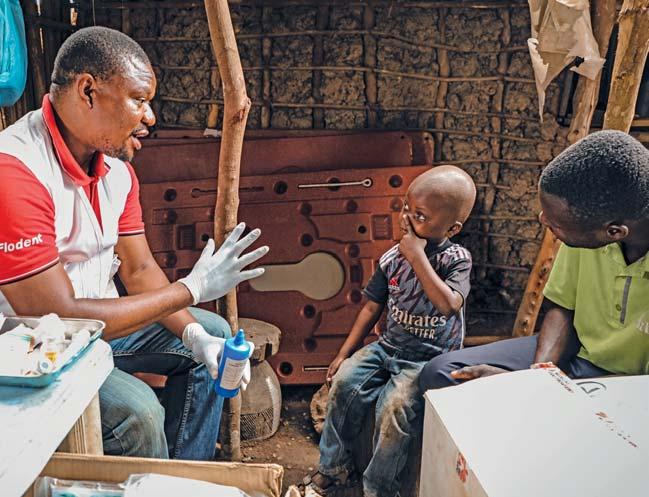
2 | DISPATCHES 2
3
5 4
1
Johnny Vianney Bissakonou
Oliver Barth/MSF
3. MYANMAR
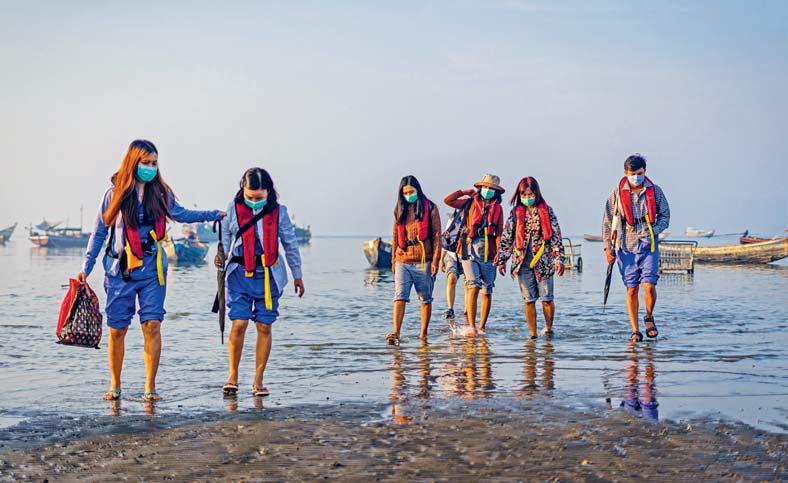
MSF staff disembark from a boat to set up a clinic in Sin Thet Maw village in Paukaw township. Ten years ago, violence erupted in Rakhine state between ethnic Rakhine Buddhist and Rohingya Muslim communities. Hundreds of people were killed, thousands of houses were burned down and some 140,000 people were displaced from their homes, most of them from the Rohingya community. MSF runs clinics within the camps where many people are forced to live, providing mental health counselling and medical referrals.
4. SYRIA
An MSF nurse examines a patient in a cholera treatment centre in Idlib, northwest Syria, where a major cholera outbreak has resulted in at least 15,000 suspected cases and 60 deaths.
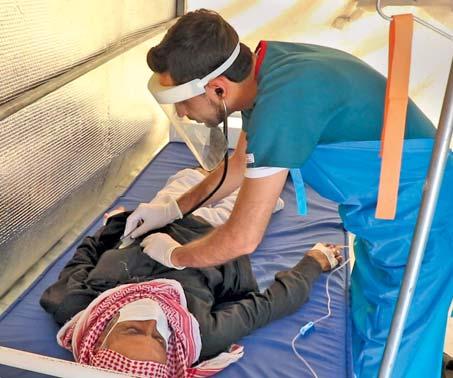
5. HAITI
An MSF team member carries a bucket of chlorinated water in a cholera treatment centre in Cité Soleil, Port-au-Prince, after a cholera outbreak was declared on 2 October. MSF has set up cholera treatment centres in four locations across the country. People in Haiti face spiralling violence, a severe fuel shortage and trouble getting hold of clean water and medical care. “Unsafe water is one of the main causes of the spread of cholera,” says MSF medical coordinator Auguste Ngantséléi, “Without drinkable water and good waste management, there is a very high risk of a spike in the number of cholera cases, and this needs to be addressed urgently.”
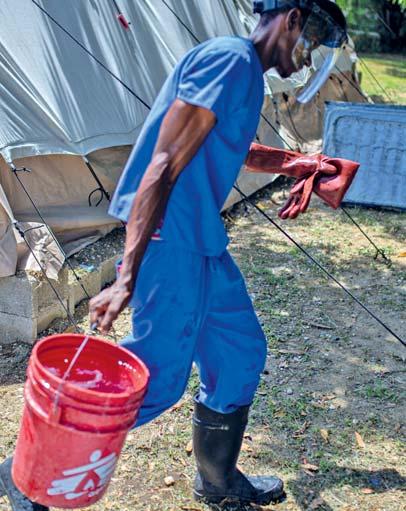
MSF’S UK VOLUNTEERS
Afghanistan: Diana Pereira De Sousa, Nurse; Deirdre O’Donnell, Doctor
Bangladesh: Ciara Flood, Nurse; Nicodeme Zirora, Finance manager
Benin: Michael Barclay, Project coordinator
Brazil: Alison Antunes, Health promoter
Central African Republic: Ewa Grocholski, Doctor; Edward Plank, Hospital facilities manager
Chad: Javid Abdelmoneim, Deputy medical coordinator; Shannon Fluck, Logistician
Colombia: Pedro Da Silva, Nurse
Democratic Republic of Congo: Mark Blackford, Finance coordinator; Emma Kinghan, Medical activity manager
Egypt: Leila Younes, Health promoter
Ethiopia: Rebecca Kerr, Project coordinator; Ruth Zwizwai, Epidemiologist; Paul Critchley, Head of mission; Cara Brooks, Deputy head of mission; Jenna Broome, Medical activity manager
Haiti: Jean Marie Vianney Majoro, Project coordinator
Iraq: Milena Beauvallet, Finance & HR manager
Jordan: Yolanda Vazquez Suarez, Activity manager
Kenya: Paul Banks, Procurement manager
Kiribati: Manja Leban, Doctor
Lebanon: Jacklyne Scarbolo, Midwife; Peter Garrett, Doctor
Lithuania: Georgina Brown, Project coordinator
Mexico: Lindsay Solera-Deuchar, Activity manager
Mozambique: Jill Powis, Finance & HR manager
Myanmar: Corinne Linnecar, Humanitarian ; Joan Hargan, Medical team leader
Netherlands: Edward Taylor, Deputy head of mission
Nigeria: Clare Atterton, Nurse
Pakistan: William de Glanville, Epidemiologist; Kate Thompson, Finance coordinator; Karl Flynn, Fleet manager
Palestinian Territories: Helen Ottens-Patterson, Head of mission
Peru: Davina Hayles, Project coordinator
Sierra Leone: Thomas Duggan, Logistician; Stephen Payne, Learning manager; Jessica Comi, Nurse
Somalia: Abdirashid Bulhan, Logistician South Africa: James Smith, Migration referent
South Sudan: Iina Hiironen, Epidemiologist; Chloe Widdowson, Nurse; Amanda McNaughton, Doctor; Catherine McGarva, Mental health manager; Benedict Porter, Doctor; Sarah Hoare, Nurse; Rachel Folwell, Doctor; Alice Tindal Carill Worsley, Nurse; Fabian Erwig, HR coordinator; Marcus Shelley, Project coordinator
Sudan: Elizabeth Wait, Health promoter; Melissa Buxton, Nurse; Hanadi Katerji, Nurse; Michael Kalmus Eliasz, Doctor
Syria: Beatrice Blythe, Health promoter
Tajikistan: Philippa Lowth, Nurse
Ukraine: Thomas Marchese, Logistician; Timothy Hammond, Medical coordinator; Jason Dunnett, Finance & HR manager; Charles Hardstone, Water & sanitation manager
Uzbekistan: Mshauri Delem, Project coordinator
Venezuela: Maria Zavala San Andres, Nurse; Guy Millington, Logistician
Yemen: Fionnuala Ryan, Paediatrician
Zimbabwe: Caroline Bradley, Mental health supervisor; Mariana Goncalves, Water & sanitation manager; Michael Parker, Project coordinator
WINTER 2022 | 3
Ben Small/MSF
Alexandre Marcou/MSF
MSF
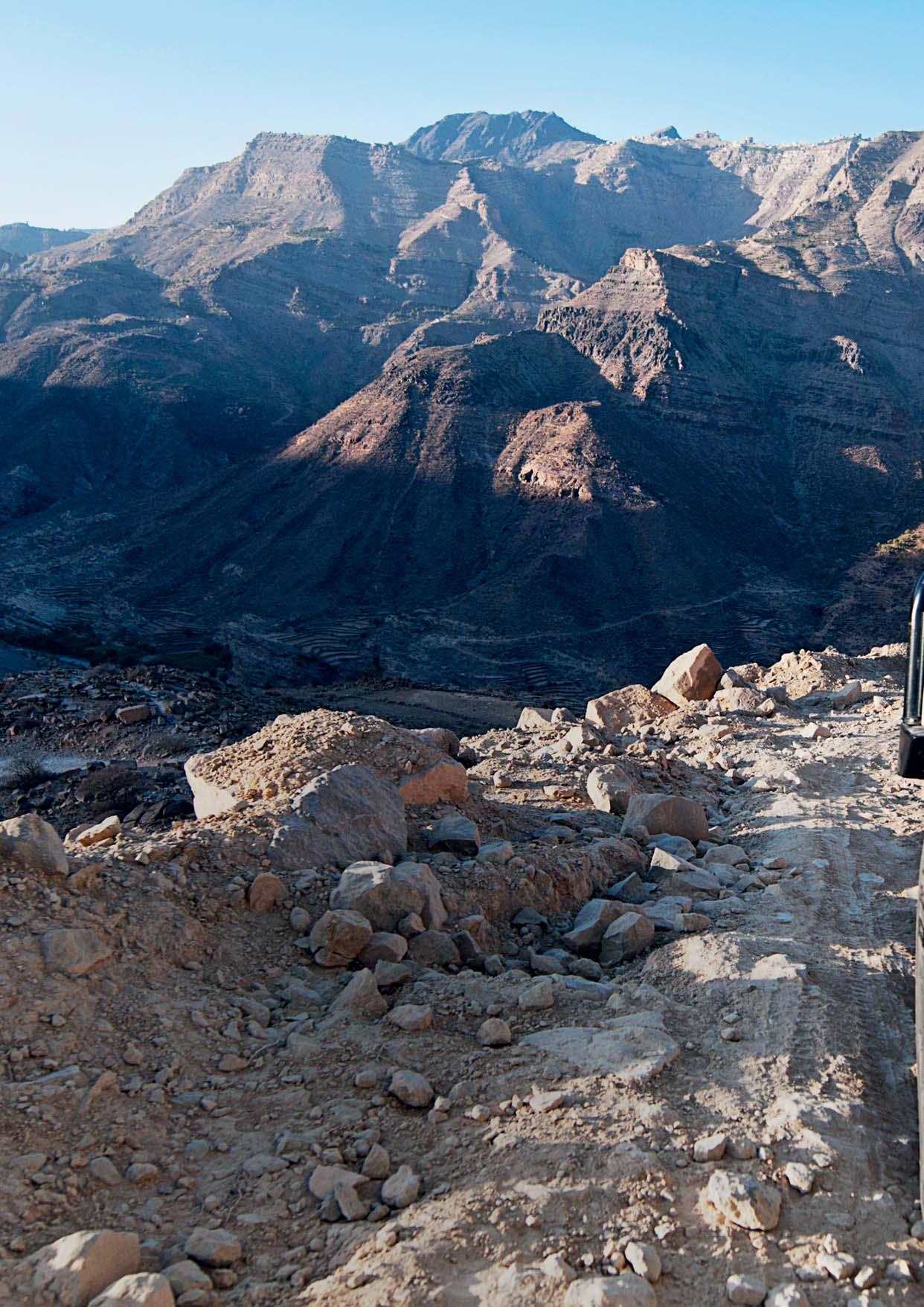


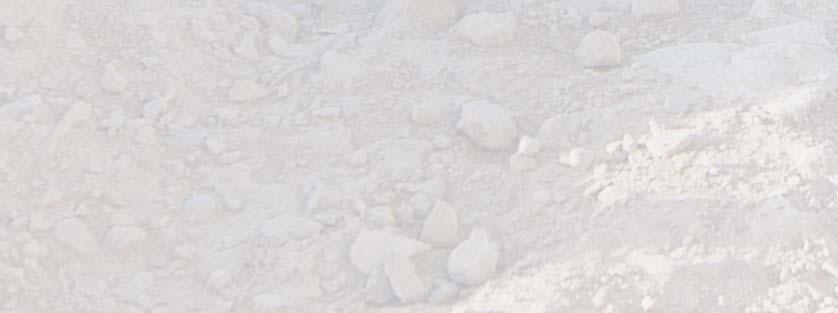

4 | DISPATCHES YOU’RE RUNNING A MATERNITY WARD AND HAVE SIX HOURS OF FUEL LEFT TO KEEP THE EQUIPMENT OPERATING AND THE LIGHTS ON. WHAT DO YOU DO? MSF PROJECT COORDINATOR RITA BENJELLOUN SEARCHES FOR A SOLUTION IN TAIZ CITY, YEMEN…
MSF
conduct a mobile clinic in the remote
in
Yemen.
An
team
Osman Valley
northern
Iwas coming to the end of my second week in the job and I was looking forward to a day off. In Yemen, Friday is the day off. We’d been working long hours and I’d planned to use the day just to catch up with myself, do some admin and sort things out.
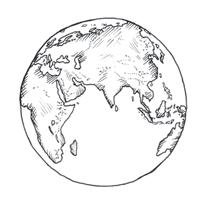
Early on Friday morning, the phone rings. It’s one of my team telling me that they’ve heard the hospital is closing.
‘What do you mean, the hospital is closing?’
‘They’re running out of fuel – there’s no more fuel in the hospital – so they’re shutting everything down.’
‘You’re joking,’ I said. ‘No, no, no, they can’t shut the hospital down.’
MSF runs the maternity unit at the hospital. We have sick patients there, some of them in a critical condition. We have babies in incubators. It will be a disaster. That cannot happen.
What do we do? We need to find fuel, and find it fast…
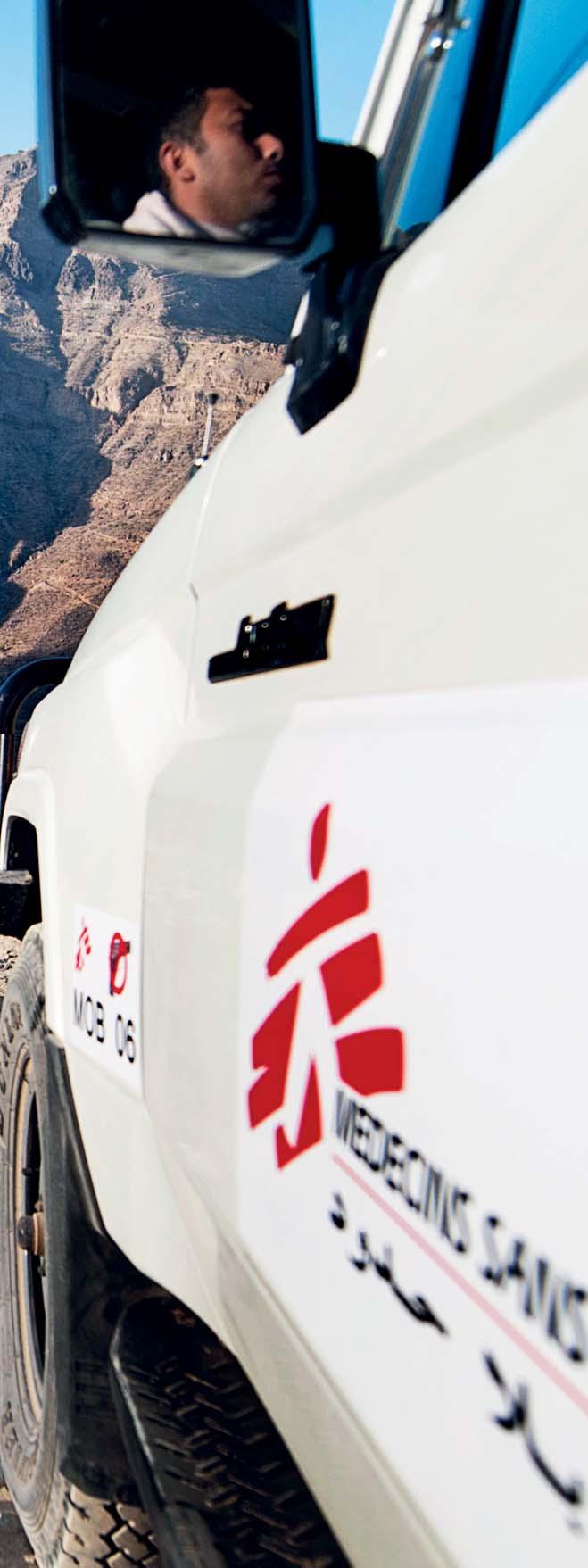
A CITY SPLIT IN TWO
Taiz is a city in the southwest of Yemen, high up in the mountains. It’s a seven-hour drive from Aden. You drive through the desert and then up a very steep, windy, slightly terrifying road into the mountains, and then you arrive at this beautiful, isolated city.
There have been times during the conflict when the frontlines have split the city in two, and sporadic fighting and injuries from sniper fire and landmines remain a problem. In many ways, it’s still a besieged city. Because of the conflict and blockades, getting anything into or out of Taiz is a big challenge, whether that’s food, equipment or, in this case, fuel.
The medical needs there are huge. When MSF took over the maternity unit in one of Taiz’s hospitals in 2021, the newborn mortality rate was very, very high. The team worked extremely hard to bring it down, and
WINTER 2022 | 5
YEMEN WORDS RITA BENJELLOUN PHOTOGRAPHY JACOB ZOCHERMAN MAJD ALJUNAID NUHA HAIDER
Jacob Zocherman
I was really pleased that, in the time I was there, we had no maternal deaths at all. It’s very challenging work.
My job as project coordinator is to support the team. I coordinate all the departments – HR, finance, logistics, supply – and ensure the medical team have everything they need to do their jobs and save lives. In that role, I’m a manager, a fixer, an accountant, a security consultant and a counsellor all rolled into one.
Anyone in the team who has an issue or a problem comes to me and we find a solution. Obviously I can’t give technical answers to a surgeon, and I don’t know how to fix generators, but what I can do is to find people who can. It’s my job to find solutions to problems –such as a hospital running out of fuel…
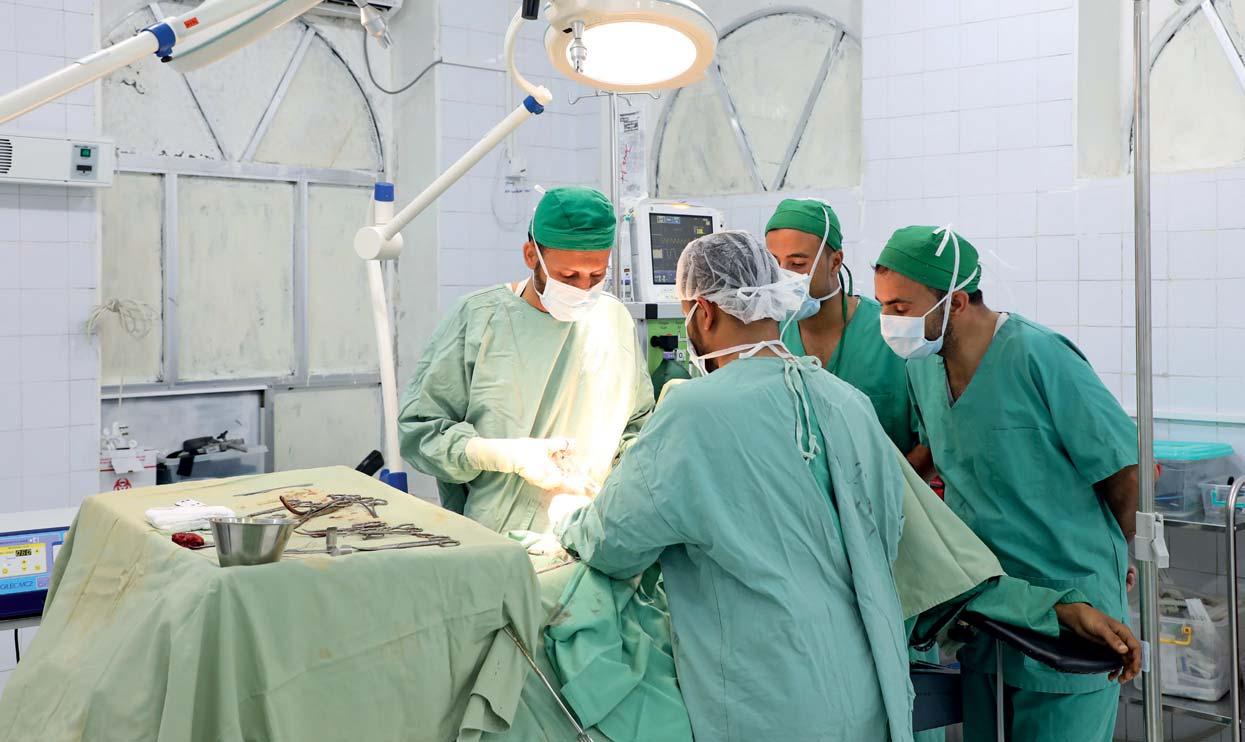
‘WHAT’S OUR PLAN B?’
I got off the phone and immediately jumped on another call on the way to the hospital.
‘How much fuel do we have left?’
‘Six hours, and then we’re out’
‘Okay, that’s our deadline. What’s our Plan B?’
We assess the situation. How many patients do we have? What condition are they in? Can we refer some patients to other hospitals? The medical team get to work on that strategy while I work with the logistics team to find fuel.
Hassan, the logistics manager, and the logistics supervisor, also called Hassan, are both at the hospital already. It’s just gone 6 am. I didn’t even have to call them, they’re here already, working to find solutions. What a team!
That’s one of the best things about working here. The staff are so reliable, so hardworking, so welcoming. When I first arrived, all the staff kept giving me presents. It got to the point where I had to say: ’Guys, thank you so much, but you’ve got to stop with the presents.’
‘What about food? Can we keep giving you food?’
‘Oh yeah, definitely, you can keep giving me food. It’s delicious.’
OLIVIA’S FUEL
We call fuel suppliers. All of them say they can do tomorrow no problem, or the day after, but not today. Part of the trouble is that not only is it Friday, the day off, but it’s also Eid. It’s the worse possible combination of circumstances.
my job to find solutions to problems…”
We make more calls, we talk to more people, we try to beg, we ask to borrow, but everybody says the same thing. Getting a delivery of fuel today is going to be impossible.
6 | DISPATCHES
“It’s
2021. Twelvemonth-old Hadeel Ghazi is checked by a doctor in the respiratory unit of MSF’s mother and child hospital in Houban.
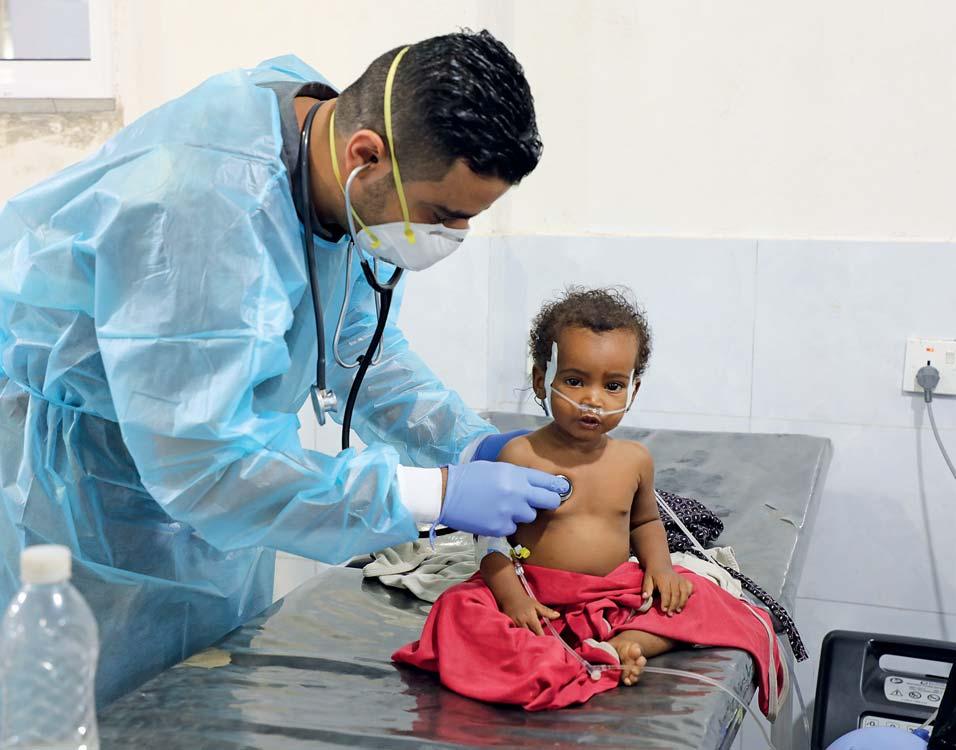
MSF’s surgical team operate on a patient in the general rural hospital in Dhi As Sufal district, Taiz governorate, located near one of the main frontlines in the Yemeni civil war.
We talk to the medical team. Some patients can be moved, but for others, such as those being incubated, there is a real risk to life if we move them.

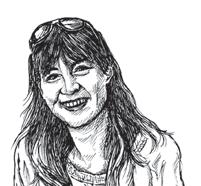
I sit back for a moment. There has to be a solution. I think about a similar situation I was in in Syria. I was with MSF running a COVID hospital and we had run desperately short of oxygen. You can’t run a COVID hospital without oxygen. I remember having nightmares about it like I was suffocating and couldn’t breathe, I was so desperate to find oxygen. At the last minute we found a solution and got our oxygen.
Don’t give up. You can always find the solution if you keep at it.
The team are sitting around the table, following leads, making calls, talking through potential options. Suddenly our Australian midwife, stops and shouts out: ‘Olivia’s fuel! We should take Olivia’s fuel!’
A bit of backstory. Olivia was our watsan (water and sanitation expert) who had spent a lot of time and effort installing an incinerator so we could dispose of waste more effectively and safely. She’d just returned to the UK but had been very particular about ongoing maintenance of the incinerator, and particularly about the incinerator fuel. Just before she left, she made it clear to everyone: ‘No one touches the fuel from the incinerator.’ Sorry Olivia!
A team goes to check it out. Yes, there’s 1,500 litres of fuel in the incinerator storage, enough to tide us over until the delivery comes tomorrow. It looks like we’re not going to be burning anything today.
I send a quick text to Olivia. ‘Sorry, we’re borrowing the fuel from your incinerator. I promise, promise we’ll put it back in 24 hours.’
We swing into action, but there’s a new problem. We don’t have a pump to extract the fuel from the incinerator tank, so we’ll have to do it manually. That’s fine, but we’re already past the four-hour mark, with only a little over an hour left before the lights go out.
Hassan and Hassan start to collect jerrycans from all over the hospital and soon a team is working on filling them. Another team then carries them physically from one side of the hospital, where the incinerator is, to the other side, where the generator sits, now running dangerously low on fuel.
We’re running against the clock and it’s super-stressful but, in less than an hour, the job is done. The generator is stocked up, the lights stay on and, most importantly, all the patients are safe and nobody dies. It’s a good day’s work.”
Names have been changed.
WINTER 2022 | 7
17 September
READ MORE AT MSF.ORG.UK/YEMEN
Rita Benjelloun is a project coordinator who has worked in Yemen, Syria, Haiti and Democratic Republic of Congo.
Majd Aljunaid/MSF
Nuha Haider/MSF
UKRAINE WORDS CHRISTOPHER STOKES PHOTOGRAPHY HUSSEIN AMRI ANDRII OVOD
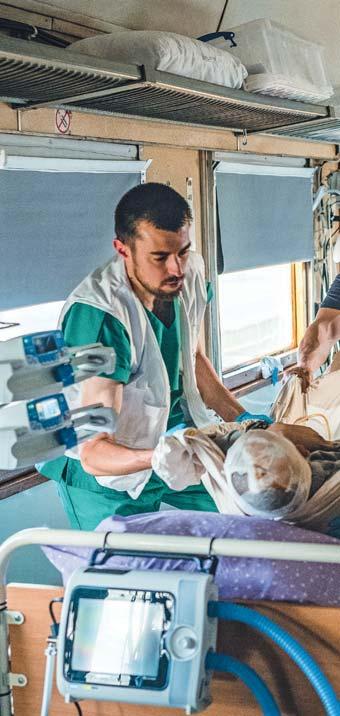
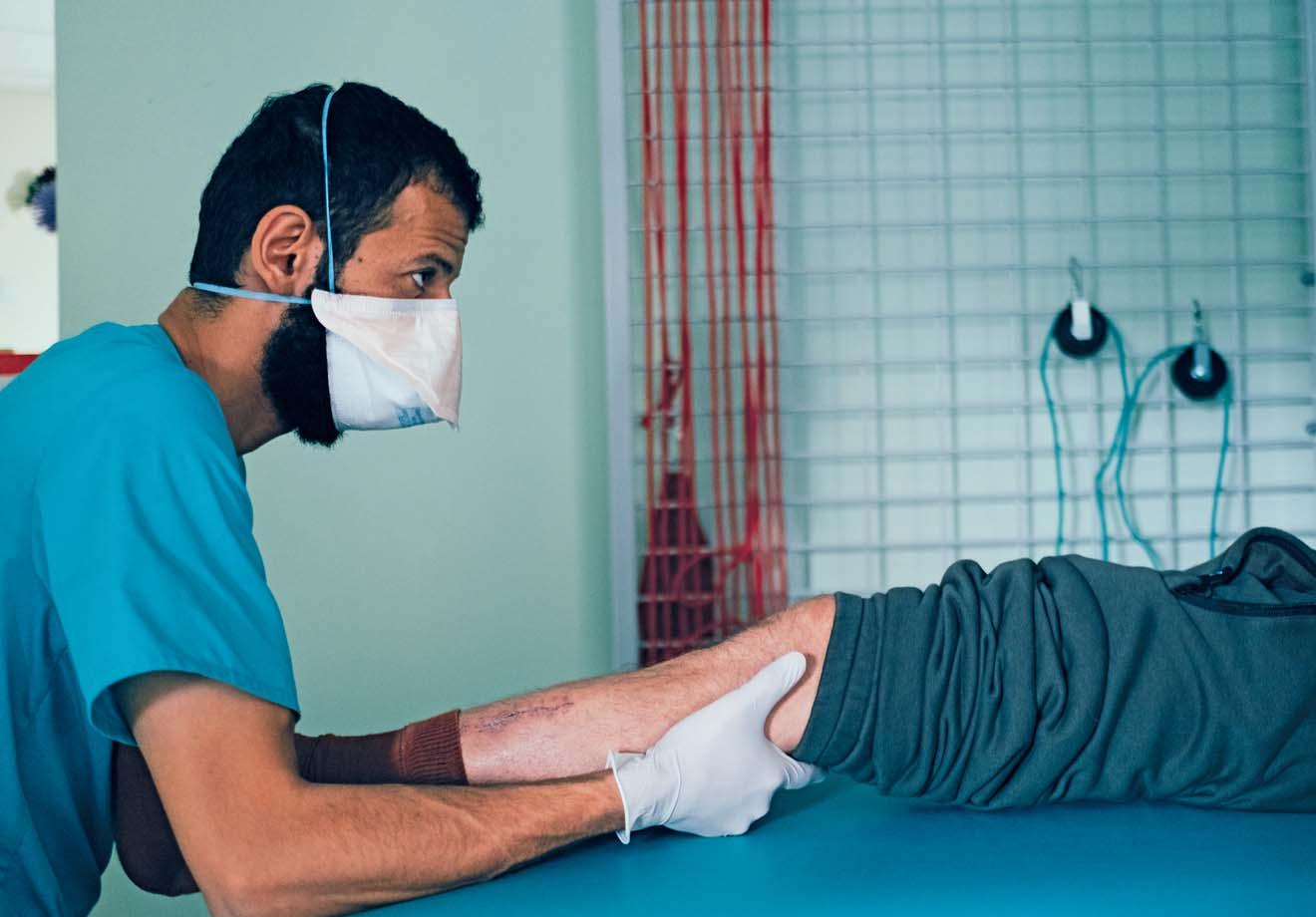
‘We heard the blast from the first missile…’
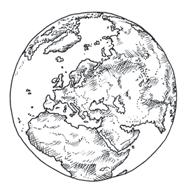
8 | DISPATCHES
CHRISTOPHER STOKES IS COORDINATING MSF’S MEDICAL WORK IN UKRAINE.
A severely wounded patient is moved from an ambulance stretcher to a bed in the intensive care unit of MSF’s medical train, 20 May 2022.

MSF physiotherapist Ahmad Alrosan massages the leg of patient following surgery in Kyiv, 15 September 2022.
we’ve evacuated 1,851 patients in 60 trips, most of them suffering from blast injuries and shrapnel wounds. We’ve also used the train to evacuate children from orphanages and patients from psychiatric hospitals close to the frontlines.
Last weekend we carried one family on the train who needed to be evacuated from the war zone. They were from Nikopol and had returned to their home on 5 October after having fled the war months earlier. On 6 October, just one day after returning, their house was hit by a shell. The father suffered minor injuries, but one of his daughters was badly injured and ultimately had to have both legs amputated. She was only six years old.
Like this family, so many Ukrainians have brought their families back to Ukraine thinking it was getting safer. But the ongoing drone attacks killing civilians and the electricity blackouts are making many rethink that decision.
One of the things that’s very powerful about being on MSF’s train is the strong bond that develops within the team and with the patients. You’re all in this confined space for a number of days, and there is a real sense of shared purpose, for both Ukrainian and international staff.
23 OCTOBER 2022
n 10 October I had just left the train station in Dnipro, in eastern Ukraine, when the car I was travelling in suddenly starting shaking. A fraction of a second later, we heard the blast from the first missile. By the time we reached the office a few minutes later, we’d felt four more shockwaves from strikes. Since then, there have been regular waves of drone attacks targeting infrastructure and civilian areas across the country. Yesterday there were more hits close to where we were working.
We’re now gearing up for the very real possibility that the electricity will go off across large parts of Ukraine as a result of these ongoing attacks. That will have drastic knock-on effects on hospitals, on healthcare, on people’s lives. People are heading into winter with the risk that there will be no electricity, no heating and no water.
We’re doing our best to prepare. We’re helping a number of hospitals near the frontline get ready for winter. We’re running mobile clinics in areas previously under Russian occupation where people have had no access to the medicines they need for months. We’re running an ambulance service, as so many have been destroyed. MSF operates a specially designed medical train that evacuates patients from near the frontlines of the fighting to safer areas and we’re looking at ways to keep that running, even if the electricity fails. It’s been kitted out by MSF and Ukrainian Railways with an intensive care unit and inpatient carriages. To date,
It’s an intense environment. Many people have been trapped in towns and villages that have experienced weeks of heavy shelling. Many people have been living in basements for weeks or months. There was one 81-year-old woman who had been living in her basement and had buried her son before finally saying she’d had enough. She was lightly injured and we were able to evacuate her.
When people come onto the train, they want to talk, to tell their stories, to have human contact. It’s often the first time they’ve been in a reasonably safe environment for weeks or months and it’s very emotional, for them and for the staff.
We’re providing some mental healthcare for patients and also for our staff. Everybody here knows someone among their family or friends who has died in this war. The people working for us are very committed and want to do as much as they can to help. With that comes the risk of exhaustion, which we have to look out for.

I don’t think we’ve really grasped the scale yet of the psychological impact of this war. It’s something that, as MSF, we need to focus more of our attention on.
The Ukrainians are doing the vast bulk of the medical work in this war. Our role is about filling the gaps, whether that’s supplying ambulances, running the medical train or providing medicines to people cut off from healthcare. With these latest attacks, people’s medical needs in Ukraine are growing, and it’s vital that we are here.”
Christopher Stokes has worked for MSF since 1993, managing emergency operations in conflict areas including Afghanistan, Rwanda, Lebanon, Kosovo and Chechnya.
READ MORE AT MSF.ORG.UK/UKRAINE
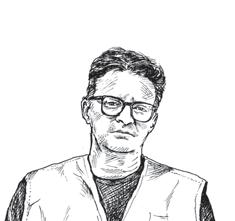
WINTER 2022 | 9
O
Andrii
Hussein Amri/MSF
Ovod
SOMALIA EYE CAMPS









Since 2018, MSF has been running a series of eye camps in Somalia, providing treatment and surgery for a range of debilitating eye conditions. Ranging from cataract surgery to treatment for eye diseases to glasses prescriptions, the camps provide a one-stop shop for essential eye healthcare.
“Eye problems, like many other health issues in Somalia, often go untreated,” says Dr Fuad, MSF medical coordinator for Somalia. “Common conditions such as cataracts all too often lead to blindness if left untreated. Losing one’s sight – which often leads to losing one’s livelihood – can be devastating, especially in a country affected by conflict and poverty. Which is why this relatively simple surgery can have a huge impact on patients’ lives, improving their chances of living a dignified and healthy life.”
The eye camps are held at local hospitals and clinics and include screening, surgery, treatment, health education and counselling. Since commencing the camps, the teams of eye specialists have reached thousands of people living with eye diseases, in many cases helping them to regain their sight.
2. EYE TESTS

































































“What’s also important is that, through this work, we’re able to reach a group of people we often struggle to treat: elderly men. And in these areas of Somalia, when you reach that group, it opens doors for your work. It encourages people to accept you and what you’re doing, so that then you can reach other people.”
1. SCREENING CLINIC




















“There is a lot of organisation and preparation for each camp,” says Dr Fuad, “especially as we have to manage the camps remotely and work with partners due to security reasons. In the weeks before a camp, we will spread the word that a camp is going to occur and, in the days leading up to it, will hold a range of clinics where people are screened to ascertain if they need surgery, glasses, further examination or medical treatment.”
Illustration: richardpalmergraphics.com
Find out more about the eye camps at msf.org.uk/eyecamp
10 | DISPATCHES
TREATING CATARACTS



This condition causes cloudy patches to form in the lens of the eye. It impairs vision and, without surgical intervention, causes blindness.
1. Light entering the eye is scattered, causing blurry vision.
























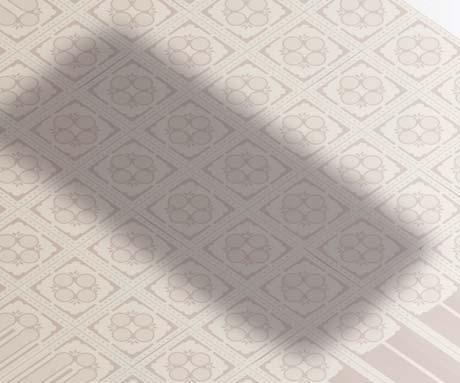

















2. A simple operation can replace the damaged lens with a new one, allowing light to focus correctly on the retina.
4. FITTING GLASSES
Many school-age children in Somalia have never had an eye test before. In one eye camp run by MSF in the Hudur region, more than 4,000 schoolchildren had their eyes tested. Every child who needed glasses was provided with prescription lenses and standard plastic frames, all paid for by MSF.
“Many children have been struggling to see at school,” says Dr Fuad. “But then they come to the eye camp,
they are provided with a prescription and glasses, and their performance, their ability to learn, their quality of life and their options for the future are all improved.
“The standard plastic frames that we provide are simple and inexpensive but, like so much else about this project, they are completely lifechanging.”
3. CATARACT SURGERY
“By the day the surgeons arrive, everything and everybody is ready,” says Dr Fuad. “Cataract surgery is done under local anaesthetic and is a relatively short procedure, lasting five to ten minutes.”
On average, about 4,000 people are treated during each camp.
5. FAST RESULTS
“What we’re doing here is not complicated, even the surgery,” says Dr Fuad. “But it’s completely transformative for the people treated. Overnight, people can have their vision and their independence restored to them. The results are immediate and tangible. One man we operated on had been blind for five years but was suddenly able to see.”
WINTER 2022 | 11
IRISCLOUDY LENSCLEAR REPLACEMENT LENS RETINA
£19.30 Prescription glasses for children £2.63 Medication drops for eye infections
Cooking for colleagues

ARIF SOHAIL IS MSF’S SUPPLY TEAM LEADER IN SIERRA LEONE, WORKING TO ENSURE THAT MEDICAL TEAMS HAVE THE EQUIPMENT AND MATERIALS THEY NEED TO SAVE LIVES. DESPITE THE BUSY WORKLOAD, HE’S FOUND TIME TO LEARN A NEW SKILL…
When I took my first job abroad with MSF, I knew there would be lots of things to learn. In any new assignment, there are local needs, ways of working, different systems. But there was also something else: I decided to learn how to cook.
I am originally from Khost, in southeastern Afghanistan. I was born in 1988, into a big extended family of 27 people. For almost all of my life, there has been fighting going on in my country.
In my early 20s, I got a job in the supply team at MSF’s maternity hospital in Khost, which is one of MSF’s busiest worldwide. The needs are huge: in the first six months of this year alone, around 10,000 women gave birth there.
I quickly learned that the supply team plays a key role in a medical humanitarian organisation like MSF. It’s about making sure that all the goods – medical equipment, logistics materials, everything – arrive on time. So, if a surgeon needs a scalpel or a premature baby needs oxygen, there’s no delay. That’s how we support medical activities and save lives.
I’m a father of five daughters; the oldest is nearly 12 and the youngest is nearly two. All of my children were born in MSF’s hospital in Khost so, before I even joined the team, MSF was already part of my family.
As a father, it’s my responsibility to be an example to my girls and support them have a good life. Like other Afghans, we’ve endured difficult situations because of
the consecutive wars. Compared to other provinces, life in Khost is better in terms of security and the economy. However, many people have left to work abroad, sending money back to support their families.
I, too, left Afghanistan to support my family. But working with MSF means I also have the opportunity to help others facing difficult circumstances, extend my professional experience and learn more about different cultures and communities.
After working in the maternity hospital, I was promoted to warehouse advisor at MSF’s head office in Kabul. A short trip to support the MSF team in Nigeria inspired me to apply to work abroad, and in 2019 I got my first full assignment: as warehouse manager in Sierra Leone.
MSF has worked in Sierra Leone for 35 years. We’re currently focusing on getting medical care to mothers and children and treating people with tuberculosis. Working abroad, I miss my family, my friends and Afghanistan in general. I follow the situation there closely. I also miss the cooking. Most men in Afghanistan don’t know how to cook. So, going abroad for the first time, I struggled with food. Since I’m now away regularly, I’ve been trying my best to learn to cook, from YouTube videos and from my MSF colleagues. Being away from our beloved families is not easy. We try to support each other, and one way of doing this is to cook something and share it with the team. When I go home on vacation, I occasionally do the cooking as well. My wife is always surprised when she
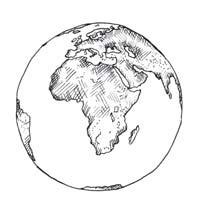
12 | DISPATCHES
STAFF PROFILE
SIERRA LEONE WORDS AND PHOTOGRAPHY ARIF SOHAIL
sees me in the kitchen! I also love getting outside –even a game of badminton helps us come together and manage stress.
I now have almost ten years’ experience working in supply chain management in different countries with MSF. One thing I’ve learned is that there is no ‘normal’.
Sometimes a sudden emergency means an influx of people needing care and lots of urgent requests for supplies. Sometimes we have challenges importing potentially lifesaving equipment, or prices fluctuate, or we have to ensure that items purchased from local markets meet MSF standards.
In Sierra Leone this year we have worked on 95 international freight shipments via air, sea and land, all bringing with them the materials that teams need to care for our patients.
It gives me extra energy and motivation to be part of an organisation that stands by people at the time they need it most.”
A RECIPE FROM ARIF
“Kabuli pulao is an Afghan rice dish that I recently cooked for my colleagues in Sierra Leone. I hope you enjoy it!”
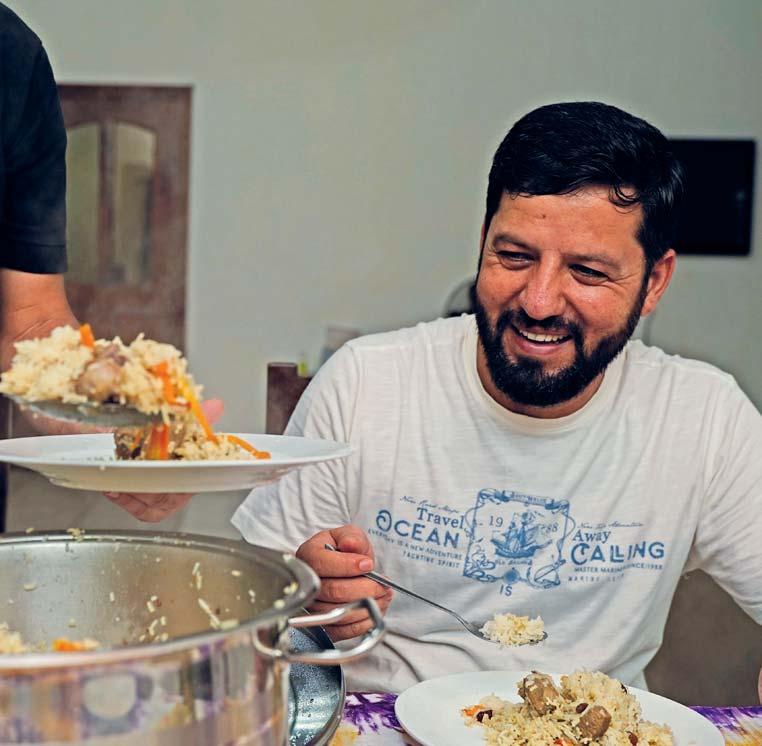
INGREDIENTS
4 cups long-grain or basmati rice
1 cup sesame oil or other oil
2 large onions
1 kg goat/beef/lamb meat
1 tbsp salt
1 tbsp cumin seeds
6 cups hot water
4 carrots (if available)
1 cup of red raisins (if available)
METHOD
1. Wash the rice and soak in cold water for three hours.
2. Slice the onions.
3. Heat the oil in a large deep-sided pan
4. Add the meat to the pan; add salt to taste.
5. Add the cumin seeds.
6. Fry for ten minutes.
7. Add four cups of hot water. Cover with a lid and cook on medium heat for 45 minutes until the meat is tender.
8.
9. Remove the pan from the heat. Keeping the meat in the pan, take half the soaked rice and spread it on top to form a smooth layer, covering the meat completely. On top of this, add the carrots and raisins and spread them out. Finally spread the rest of the rice in a layer over the top.

10. Add enough hot water to ensure that the rice is covered by about half an inch – around two cups’ worth.
11. Wrap the lid of the pan in a clean tea towel. Secure carefully and use to cover the pan.
12. Return to a low-to-medium heat for 45 minutes until all the water has been absorbed.
Arif enjoys a meal with the MSF team in Sierra Leone.
WINTER 2022 | 13
“Being away from our beloved families is not easy...”
PAKISTAN WORDS AKEELA KUL PHOTOGRAPHY ASIM HAFEEZ ZAHRA SHOUKAT
‘THE WATER WAS NINE FEET DEEP...’

AKEELA KUL* IS AN MSF COUNSELLOR AND HEALTH PROMOTOR WHO LIVES IN A SMALL VILLAGE IN BALOCHISTAN, ONE OF THE AREAS HARDEST HIT BY THE EXTREME FLOODING THAT LEFT ONE-THIRD OF PAKISTAN UNDERWATER. AFTER LOSING HER HOME, SHE IS NOW HELPING OTHER PEOPLE LEFT HOMELESS BY THE FLOODING.
Dr Bakhtawar talks to a patient at an MSF mobile clinic in Alladad village, in Dadu district, Sindh.
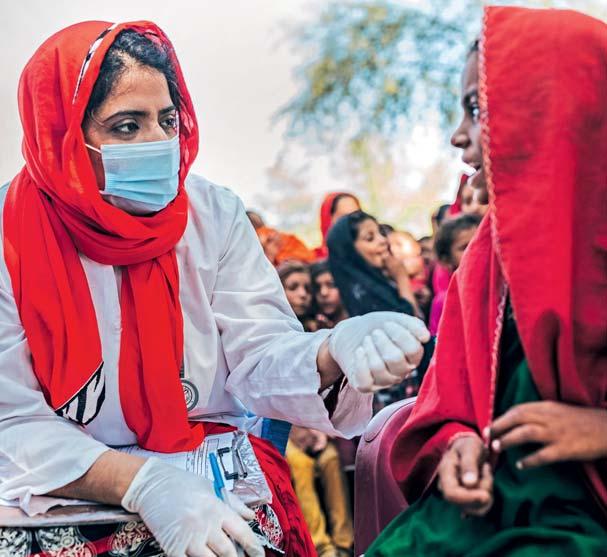
Children collect water in a camp for people displaced by the flooding in Dadu district, Sindh.

14 | DISPATCHES
Hafeez
Asim
In June and July, we received normal rainfall and daily life was going fine. At the weekends, I visited my family in my village, which is about three miles from Dera Murad Jamali, where I work with MSF’s outreach team. In my job, we visit local communities to raise awareness about mother and child health and different diseases.
In early August there was an unusual amount of rain and then, on 17 August, the water started coming towards our village and we were instructed to leave.
In the rush, my parents and younger siblings left the village. Thankfully our uncle’s home in Dera Murad Jamali was in a safer area, so we moved there. My brother and sister were left behind to take care of our cattle, which they took to higher ground. Suddenly, the floodwater started to cover the village and they had to flee. They climbed onto the rooftop of a nearby house and watched as the water washed away our cattle, house and farm. The water was nine feet deep. It was heartbreaking to see our house and village underwater.
I took a week’s leave to support my family, but when I saw that so many people needed help, I decided to join MSF’s emergency response. Within two days, I was with a team helping to reach people in faraway flood-affected villages. We found families living in the open. I saw some people sheltering on the side of the road under two wooden bed frames, pushed together and draped with plastic, because their houses were underwater. They had no clean water. Still the rain continued.
We are running mobile clinics and providing people with clean drinking water from MSF’s water treatment plant, which is one of only a few in the region. We are seeing patients with respiratory infections, diarrhoea, malaria and skin infections. The people here are drinking the floodwater, which is contaminated, and it is spreading disease. Those people who need further treatment are referred to MSF’s district hospital.

We have distributed 236 hygiene kits to people taking shelter near Uch Power plant, we have provided 70,000 litres of clean drinking water to displaced families and we have conducted medical consultations for around 2,575 patients.
We recently set up a mobile clinic in my own village, which made me very proud. The people of my village know my work with MSF well and I was happy to provide support to my own community.
So many people still need help. I met one family with three children, all of whom had high fevers. They had travelled a long distance through the floodwaters to seek help for their children. They had nothing: no food, no water, no shelter. I felt their pain. There are many people like them in remote villages who still need assistance. We will continue travelling with our mobile clinics to reach them.”
*Name has been changed.
WINTER 2022 | 15 READ MORE AT MSF.ORG.UK/PAKISTAN Zahra Shoukat/MSF
Médecins Sans Frontières/Doctors Without Borders (MSF) is a leading independent humanitarian organisation for emergency medical aid. In more than 70 countries worldwide, MSF provides relief to the victims of war, natural disasters and epidemics, irrespective
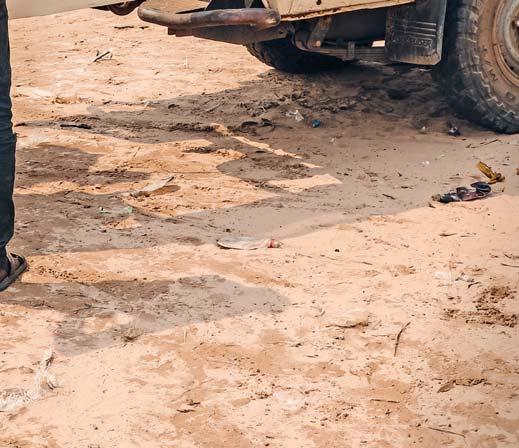
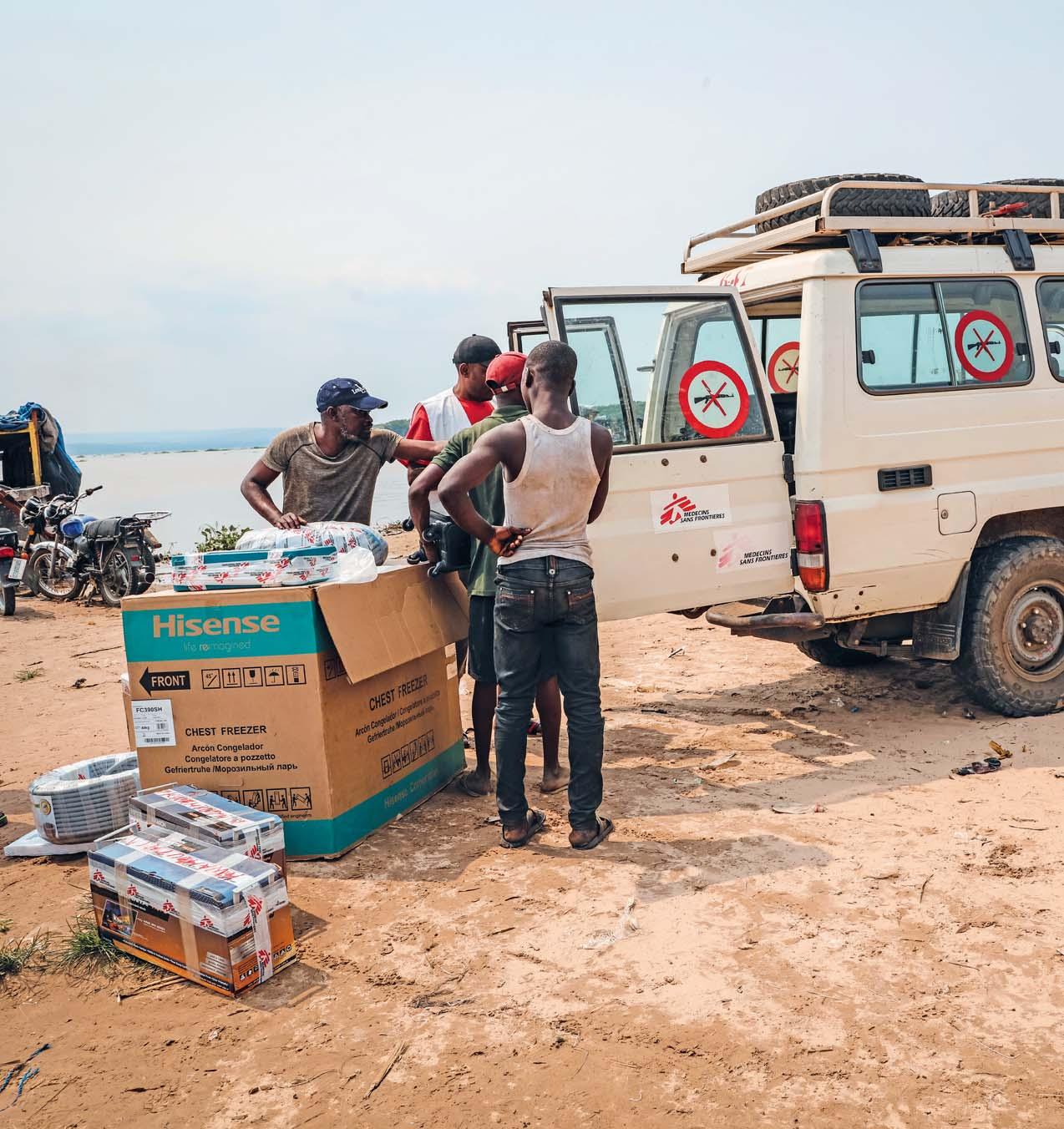
MSF was awarded the 1999 Nobel Peace Prize.
TEL 020 7404 6600
ADDRESS Médecins Sans Frontières, Chancery Exchange, 10 Furnival Street, London EC4A 1AB
@msf_uk msf.english Eng Charity Reg No.1026588


Cover image: MSF nurse Shakir treats patients in Nangar Daro village in Sindh, Pakistan.
Photograph © Asim Hafeez
ABOUT
Dispatches is written by MSF staff and sent out quarterly to our supporters to keep you informed about our medical work around the world, all of which is funded by you. Dispatches gives our patients and staff a platform to speak
and epidemics in which MSF works.
It is edited by Marcus Dunk. It is printed on recycled paper and costs £0.76 to produce, package and send using the cheapest form of post. It is an important source of income for MSF and raises three times what it costs to produce. We always welcome your feedback. Please contact us using the methods listed, or email: dispatches.uk@london.msf.org
SIGN UP TO EMAIL
Get the latest MSF news delivered to your inbox. Sign up at msf.org.uk/ signup
MAKE A DONATION
You can donate by phone, online or by post. If possible please quote your supporter number (located on the top left-hand side of the letter) and name and address.
LEAVING A GIFT IN YOUR WILL
Have you thought of remembering MSF in your will? Any gift is welcome, however large or small. For more information, contact Shona Barnes at: shona.barnes@london.msf.org or call us on 0207 404 6600
CHANGING YOUR ADDRESS
Please call 0207 404 6600 or email: uk.fundraising@london.msf.org
CHANGING A REGULAR GIFT
To increase or decrease your regular gift, please call us on 0207 404 6600 or email: uk.fundraising@london.msf.org with your request. Please also get in touch if your bank details have changed.
If you would like to stop receiving communications from us please contact our Supporter Care team on 020 7404 6600 or email uk.fundraising@london.msf.org and we’ll be happy to help. Thank you for your support.
Medical supplies for MSF’s emergency response are unloaded in Kwamouth, Democratic Republic of Congo.
Johnny Vianney Bissakonou/MSF







































































































































